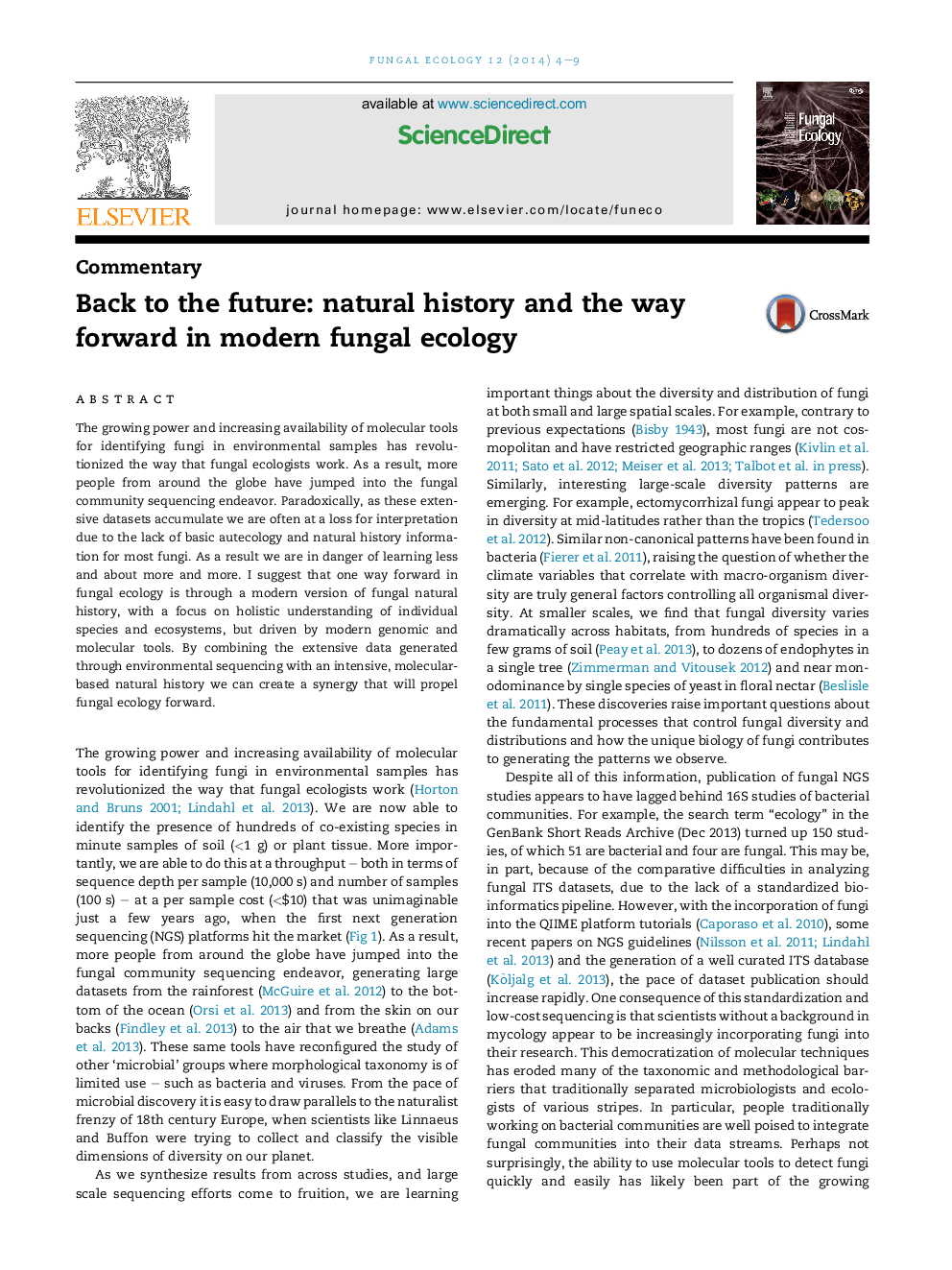| Article ID | Journal | Published Year | Pages | File Type |
|---|---|---|---|---|
| 2053934 | Fungal Ecology | 2014 | 6 Pages |
•I briefly review research trends in fungal ecology.•High throughput sequencing often misses key ecological details.•Renewed attention to autecology of fungal species is needed.•A modern, molecular natural history will bring new insight to fungal ecology.
The growing power and increasing availability of molecular tools for identifying fungi in environmental samples has revolutionized the way that fungal ecologists work. As a result, more people from around the globe have jumped into the fungal community sequencing endeavor. Paradoxically, as these extensive datasets accumulate we are often at a loss for interpretation due to the lack of basic autecology and natural history information for most fungi. As a result we are in danger of learning less and about more and more. I suggest that one way forward in fungal ecology is through a modern version of fungal natural history, with a focus on holistic understanding of individual species and ecosystems, but driven by modern genomic and molecular tools. By combining the extensive data generated through environmental sequencing with an intensive, molecular-based natural history we can create a synergy that will propel fungal ecology forward.
